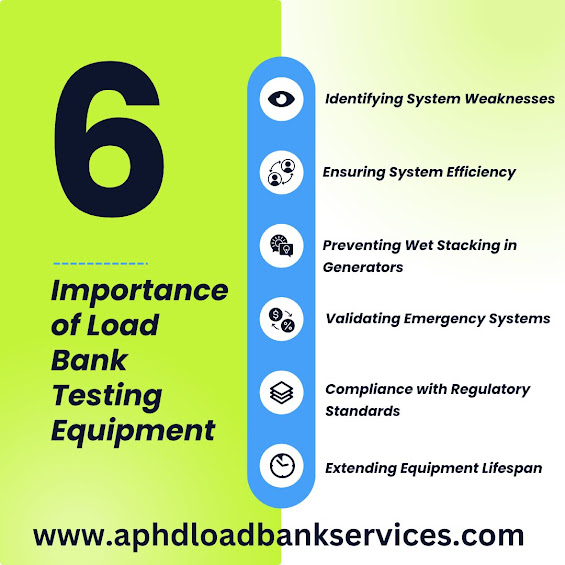Importance of Load Bank Testing
The Importance of Load Bank Testing for Ensuring Optimal Performance in Arizona
In the arid landscapes of Arizona, where scorching temperatures can put a strain on power generation and electrical systems, ensuring optimal performance is of paramount importance. Load bank testing is a critical practice for businesses, industries, and organizations in the Grand Canyon State. This process helps validate the reliability and efficiency of power systems, ensuring they can withstand the extreme conditions that often prevail in Arizona. AphDLRS, a leading name in load bank testing, understands the significance of this practice and its role in guaranteeing uninterrupted power supply.
Arizona is no stranger to extreme weather conditions, particularly during the summer months when temperatures soar to levels that can easily stress power generation and electrical systems. With the demand for energy constantly on the rise, it is crucial for businesses and industries to have robust and reliable power systems in place. Inadequate power infrastructure can lead to downtime, loss of revenue, and even safety risks.
Load Bank Testing: The Key to Reliability
Load bank testing is a comprehensive method used to evaluate the performance of power systems, generators, and backup systems. It involves applying a predetermined electrical load to the system to simulate real-world operating conditions. The primary purpose of this testing is to ensure that the system operates at its optimum level of efficiency while identifying any potential issues or weaknesses.
Key Benefits of Load Bank Testing
1. Identifying Weaknesses: Load bank testing helps in pinpointing vulnerabilities in the power system that might otherwise go unnoticed. This proactive approach allows for timely maintenance or repairs, preventing costly breakdowns and outages.
2. Optimizing Efficiency: By applying a controlled load, load bank testing ensures that the power system operates at its peak efficiency. This is crucial for businesses in Arizona, where energy costs and environmental concerns are significant factors.
3. Ensuring Reliability: Reliability is paramount when it comes to power systems, particularly in extreme weather conditions. Load bank testing ensures that the system can provide a consistent power supply when it is needed the most.
4. Extending Lifespan: Regular load bank testing can help extend the lifespan of power equipment and generators by identifying and addressing issues before they escalate.
In the unforgiving Arizona climate, where power systems are often pushed to their limits, load bank testing is essential. Here are a few specific reasons why load bank testing is so critical in the Grand Canyon State:
1. Extreme Heat: The scorching temperatures in Arizona can cause electrical systems to overheat. Load bank testing helps identify overheating issues, ensuring that the system remains operational even in the hottest weather.
2. Dust and Sand: Arizona's arid landscape generates a significant amount of dust and sand, which can infiltrate electrical components. Load bank testing verifies that the system can function in dusty conditions without compromising performance.
3. Monsoon Season: Arizona experiences a monsoon season with heavy rain and thunderstorms. Load bank testing ensures the system can handle power fluctuations and surges caused by lightning strikes and heavy rainfall.
AphDLRS, a company dedicated to the reliability and performance of power systems, stands as a trusted partner for load bank testing in Arizona. We offer a range of load bank testing services tailored to meet the unique needs of businesses and industries in the state.
1. Comprehensive Testing: We conducts thorough load bank testing, evaluating every aspect of your power system to ensure optimal performance.
2. Custom Solutions: We understand that every client's needs are unique. We provides custom load bank testing solutions to address specific challenges.
3. Preventive Maintenance: We offers ongoing maintenance services to keep your power systems in peak condition year-round, helping you avoid unexpected issues and downtime.
4. Emergency Support: In the event of a power system failure, we provides rapid response services to get your operations back on track as soon as possible.




Comments
Post a Comment